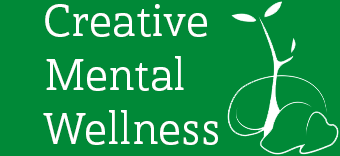CONNECTION: a Tool of Mental Health
Connection, in the context of human relationships, is a fundamental aspect of our well-being and serves as a powerful tool for promoting mental health. It encompasses the establishment and nurturing of meaningful relationships, offering a sense of belonging, support, and fulfillment.
WHAT IS CONNECTION????
CONNECTION is the act of establishing and nurturing relationships with others. It involves emotional bonds, mutual understanding, and a sense of belonging. CONNECTION is a tool of mental health as it plays a crucial role in promoting overall well-being and psychological resilience. It provides a support system that helps individuals navigate through life’s challenges, share experiences, and alleviate feelings of loneliness or isolation. CONNECTION fosters empathy, understanding, and validation, allowing for emotional expression and the building of a strong social network.
WHY DOES CONNECTION TO OTHER PEOPLE MATTER TO ME????
It is necessary for a person’s mental health to be connected to other people due to our inherent social nature. Humans are social beings, wired for connection and companionship. The absence of meaningful connections can have detrimental effects on mental health, leading to feelings of loneliness, depression, and anxiety. Connectedness to others provides emotional support, a sense of purpose, and validation of our experiences. It allows for the sharing of joys and sorrows, the ability to seek guidance or advice, and the cultivation of a sense of belonging. Connectedness serves as a buffer against stress, promotes resilience, and contributes to positive self-esteem and a healthy sense of identity.
EXAMPLES OF CONNECTIONS
Types of connections can be diverse and multifaceted, ranging from personal to professional and encompassing various aspects of life. Hobbies can serve as a connection point, bringing together individuals with shared interests and passions. Jobs, careers, and professions provide opportunities for professional connections, mentorship, and collaboration. School environments foster connections among peers, teachers, and mentors, creating a sense of community and shared learning. Situations in life, such as parenthood, can connect individuals through shared experiences and challenges. Age can be a basis for connections, as individuals from similar age groups may share common life experiences and understand one another’s perspectives. Appreciation of music, art, and film can create connections through shared cultural interests. Common interests, where you grew up, and religious affiliations can also be powerful sources of connection, bringing individuals together based on shared values, beliefs, and
experiences.
CONNECTION & COMMUNITY
The relationship between connection and community is symbiotic and greatly impacts the quality of life. Connection to a community provides a sense of belonging, shared values, and social cohesion. It allows individuals to contribute to something larger than themselves and fosters a sense of purpose and meaning. Communities offer support networks, resources, and opportunities for social engagement and mutual growth. In turn, strong connections within communities strengthen the overall fabric of society, promoting resilience, collective well-being, and social harmony. The presence of a supportive community can enhance individual mental health by reducing isolation, providing a sense of safety, and offering avenues for personal and collective growth.
HOW A GLOBAL PANDEMIC IMPACTED HUMAN CONNECTION
The recent global pandemic has profoundly impacted how people connect with one another. Social distancing measures, lockdowns, and restrictions on gatherings have forced individuals to adapt to new ways of connecting and maintaining relationships. The pandemic has presented unique challenges and barriers to traditional forms of connection. While digital connectivity has played a crucial role in bridging physical distances through video calls, messaging apps, and social media, it cannot fully replicate the depth of in-person connection. The absence of physical touch, non-verbal cues, and the challenges of building new connections during a time of increased anxiety and uncertainty have made it more difficult for people to.
CONNECTION, SUPPORT, & COPING WITH LIFE’S ADVERSE CIRCUMSTANCES
Connection to other people serves as a vital support system that plays a crucial role in helping individuals cope with life’s adversities. The presence of strong and meaningful connections provides a sense of comfort, understanding, and empathy during difficult times. Here are some key ways in which connection to others acts as a support system:
EMOTIONAL SUPPORT: Connected relationships offer a safe space for individuals to express their emotions and share their struggles. Having someone who listens without judgment, offers empathy, and provides a shoulder to lean on can significantly alleviate emotional distress. Through open and honest communication, connections help individuals process their feelings, gain perspective, and find solace in knowing that they are not alone.
- PRACTICAL SUPPORT: Connections can provide practical assistance during challenging situations. Friends, family members, or community members can offer practical help, such as providing resources, offering advice, or assisting with day-to-day tasks. This support can lighten the burden and make it easier to navigate through difficult circumstances.
- VALIDATION & PERSPECTIVE: Connections provide validation of our experiences and feelings. When facing adversity, it is reassuring to have someone who understands and acknowledges the validity of our emotions and struggles. Additionally, connections offer diverse perspectives and insights, broadening our understanding of the situation and helping us consider different approaches to coping or problem-solving.
- ENCOURAGEMENT & MOTIVATION: Connected relationships provide encouragement and motivation, helping individuals stay resilient in the face of adversity. The support and belief that others have in our abilities can boost our confidence and determination. Having someone who cheers us on, reminds us of our strengths, and encourages us to keep going can make a significant difference in our ability to cope and persevere.
- SHARING EXPERIENCES & COPING STRATEGIES: Connections enable the sharing of experiences, including how others have coped with similar adversities. Learning from others’ stories and strategies can provide guidance and inspiration. It allows individuals to gain new insights, discover effective coping mechanisms, and develop a sense of hope that they, too, can navigate challenging circumstances.
- SENSE OF BELONGING: Connection to others instills a sense of belonging, which is particularly crucial during difficult times. Feeling connected and accepted by others creates a sense of unity and solidarity, reminding individuals that they are part of a larger support network. This sense of belonging strengthens resilience, as individuals draw strength and comfort from their connections, knowing they are not alone in their struggles.
It is important to nurture and maintain connections even when we are not facing immediate challenges. Building and strengthening relationships during times of relative calm establishes a solid foundation of support for when adversities arise. By investing time and effort in cultivating connections, we build a network of support that can help us cope with life’s adversities and enhance our overall well-being.




